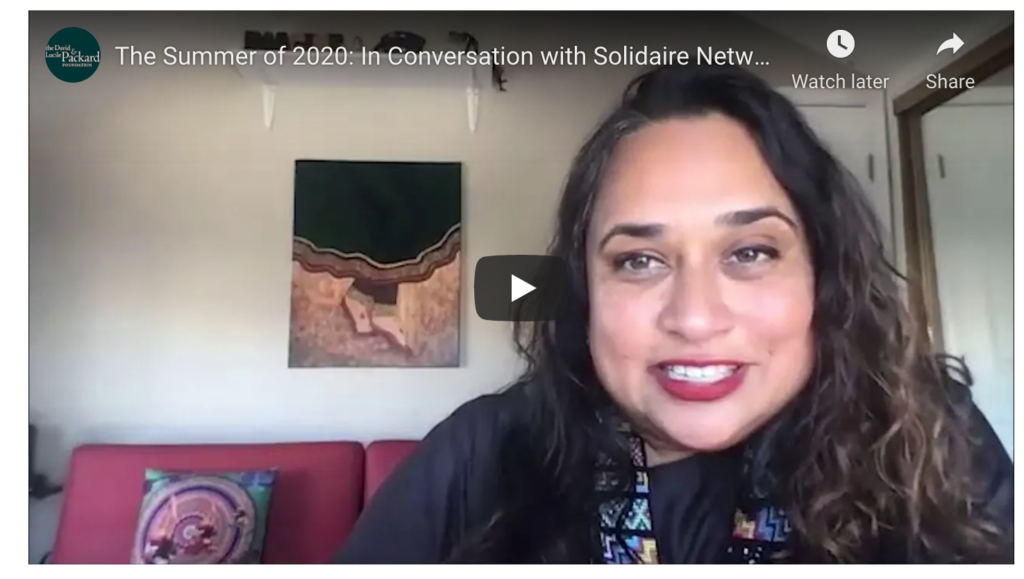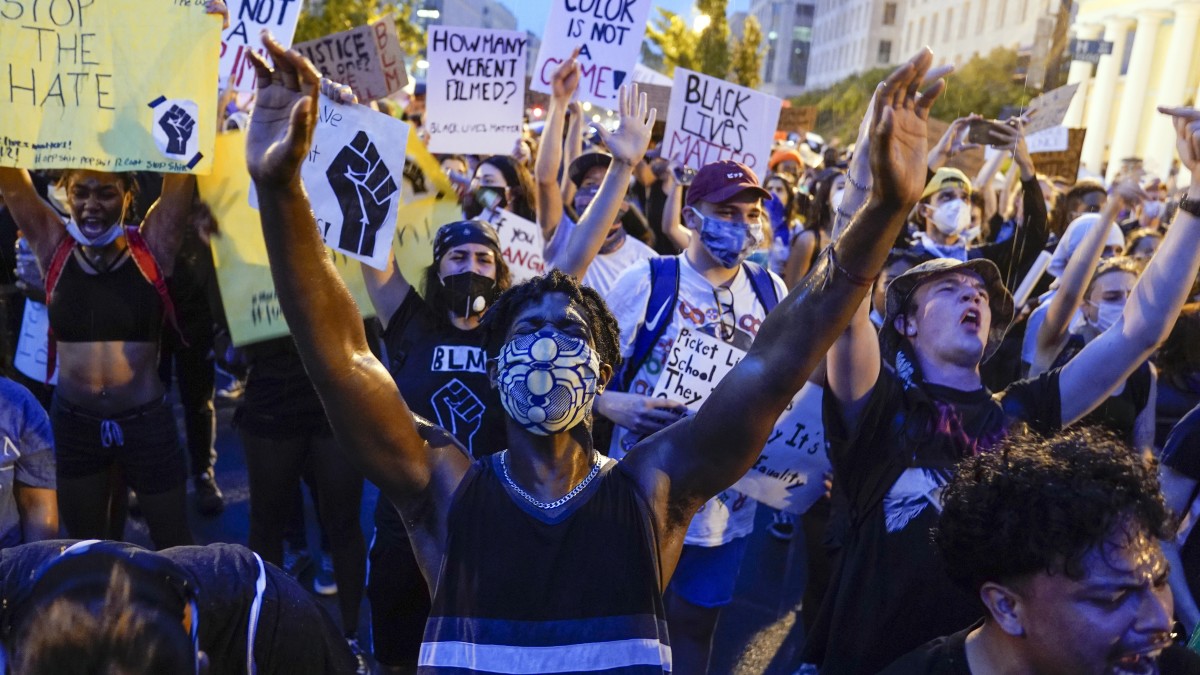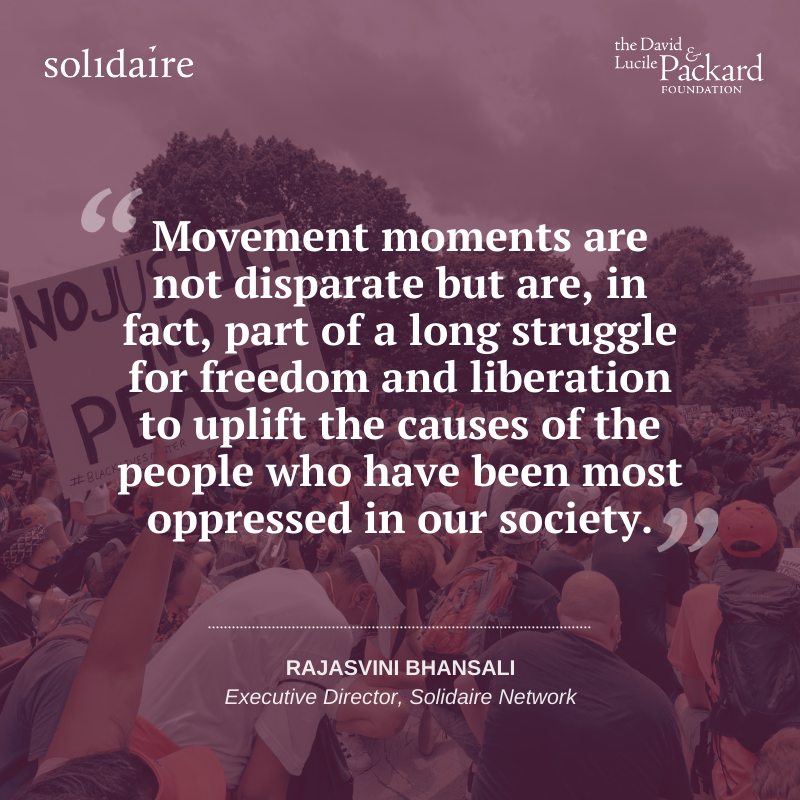Month: February 2021
Growth in Pooled Funds, Spurred by Racial-Justice Protests and the Pandemic, Could Last
Growth in Pooled Funds, Spurred by Racial-Justice Protests and the Pandemic, Could Last

In an article for the Chronicle of Philanthropy, Solidaire’s executive director Rajasvini Bhansali shares how the Black Liberation Pooled Fund got its start and the growing interest in racial justice from big foundations:
In June, Bhansali began circulating a list of the network’s previous grantees in the “Black liberation ecosystem” for her group’s members to consider if they wanted to make a donation to support racial justice.
“We quickly realized that that spreadsheet was getting spread around philanthropy,” Bhansali says. “So it made sense for us to not just have this random spreadsheet floating around with contact information but give people a way to actually pool their resources.”
The spreadsheet evolved into the Black Liberation Pooled Fund. In the months that followed, members contributed about $800,000. In August, the Packard Foundation, which had not been active in racial-justice issues, made a $20 million, five-year commitment.
The Packard grant was a sign that philanthropy was undergoing a huge transformation, says Bhansali, and one of the big ways Solidaire could make a difference would be to help introduce other institutional philanthropies to the universe of racial-justice donors and nonprofits.
“Rather than being very cloistered and sort of exclusive, maybe we can make some of our knowledge base accessible so that other foundations can follow,” she says.
“Growth in Pooled Funds, Spurred by Racial-Justice Protests and the Pandemic, Could Last” by Alex Daniels, The Chronicle of Philanthropy / February 5, 2021
Read the full article here.
Responding to the Movement Moment
Responding to the Movement Moment

We got here because of the Occupy Wall Street movement, the Arab Spring moment, the Black Lives Matter movement — these efforts told our founders that there was a real necessity for people with wealth who are already working with movements to respond immediately when a movement moment arises. Movement moments are not disparate but are, in fact, part of a long struggle for freedom and liberation to uplift the causes of the people who have been most oppressed in our society.“Responding to the Movement Moment,” Insights – The David and Lucile Packard Foundation / February 9, 2021

